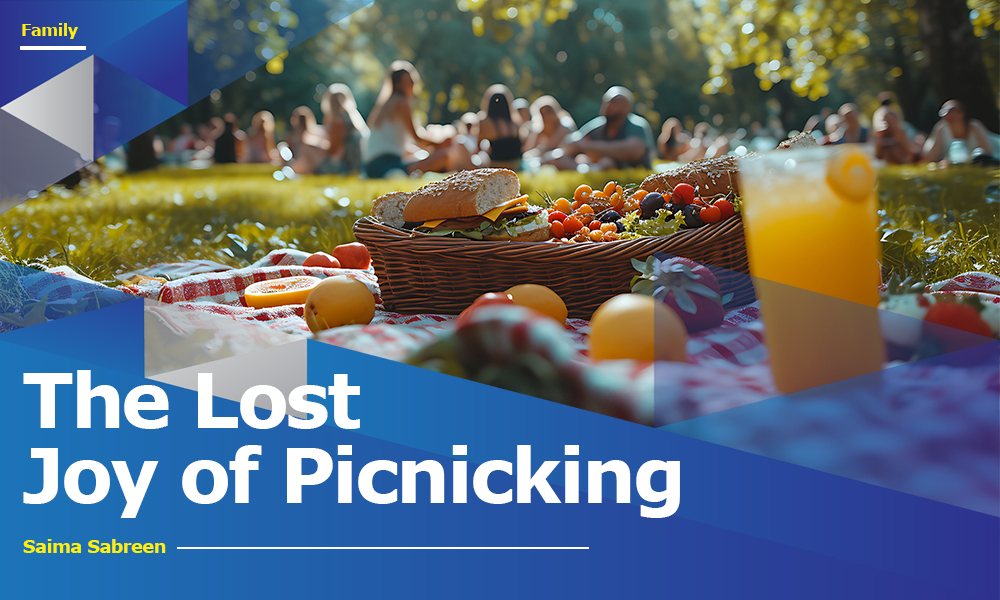Testimonial
The happiness on the face of a young child when their parents tell him, ‘How about a picnic this weekend?’ is like none other. Picnic ignites different emotions among people of various cultures, all pointing towards positive emotions. Irrespective of the age or place a person belongs to, hearing the word ‘picnic’ generally pumps up the body with serotonin levels, making one feel happy, ecstatic and filled with joy. The concept of ‘picnic’ has evolved over the years as the term ‘picnic’ is quite subjective. For one, just having a walk with friends in a park could be a picnic, whereas for someone else, calling friends home, spending a couple of hours with them and having snacks could be a picnic. However, the common points observed among various definitions of a picnic are: i. involves two or more people, ii. a place (indoor/outdoor), and iii. food (could be just snacks as well).
Are picnics important? How do they help?
Picnics have a direct impact on a person’s mental and physiological well-being. The entire process begins with planning the date location, inviting people, planning the menu, distributing the responsibilities, choosing what to wear, the journey of reaching the spot, setting up the picnic area and cleaning up and returning provides a delightful experience.
Different ways in which picnics help a person are:
Help develop bonds and social connections:
Picnics are a wonderful way for couples, family and relatives to come together, spend time away from the regular work schedule and create lasting memories. Picnics offer a chance to unwind, relax, and enjoy simple pleasures such as sunshine, fresh air, and the company of loved ones. We get to understand different points of view and learn from one another. We encounter other people during a picnic, making new friendships and ties. Man is a social animal and requires people around him. However, with the increased use of technology, we have lost time for picnics, confining ourselves only to the world of social relationships, losing out on the physical talk and touch that increases the chances of depression, anxiety and several negative emotions.
Sharing food and culture: People from the same family have different eating habits and food choices. When other people come together at one place for a picnic, which usually involves some form of food, they tend to share their traditional foods and recipes, thereby playing an important role in acculturation. This provides an opportunity to explore new flavours, share recipes, and appreciate the cultural significance of food. With increased globalisation and continuing shifts in gender roles, home cooking has declined. This has increased the dependency on outside foods. Excessive consumption of fast foods, processed foods and high-calorie foods has led to a rise in non-communicable diseases, such as obesity, cardiovascular diseases and diabetes. Since picnics usually involve cooking at home or preparing food together, they provide an opportunity to get creative with meal cooking, increase interest in trying out home-cooked meals and increase appreciation for freshly prepared wholesome meals.

Developing a bond with nature: When picnics are conducted outdoors, some time is spent walking or discussing nature’s beauty. This helps to create a stronger relationship with nature. Almighty Allah mentions in the Qur’an in Chapter 29, verse 20: “Say: “Go about the earth and see how He created for the first time, and then Allah will recreate life.” Surely, Allah has power over everything.”
Whether in a park, by a lake, or in the mountains, picnics offer a chance to appreciate the natural world and its calming effects on the mind and spirit. Many people also tailor picnics to different seasons: springtime cherry blossom, summer beach gatherings, and autumn picnics amidst colourful foliage. All these provide an opportunity to embrace the beauty and rhythms of the natural world throughout the year.
Helps promote physical well-being: Planning picnics involves planning various activities as well. This allows different people to express themselves and encourages physical activity like hiking, frisbee, or walking to the picnic spot. This enables people to find time for physical movement, which has become minimal with increased media use, particularly in metropolitan cities where traffic, rash driving and improper time management have increased the risk of non-communicable diseases. Planning a picnic more often provides more opportunities for a person’s physiological well-being.
Why are we unable to find time for picnics?
Several reasons contribute to the decreased number of picnics today. One of the major ones is improper time management. Have you ever thought that despite busy schedules, we find time for watching 30-40 one-minute reels at a stretch but do not seem to find even 5 minutes to talk to our loved ones? This is because we are not able to manage our time appropriately. Late-night culture, starting the day late and sleeping in the mornings, is considered ‘cool’ among the youth today. This causes a loss of almost half of the day, making the day seem shorter, spending time working and completing chores. Prophet Muhammad SAW has prayed for those who start their day early in the morning. He is reported to have said, “O Allah, bless my nation in their early mornings (i.e., what they do early in the morning)”. Starting the day early helps us find more time and manage time to find time for ourselves, our family, and our friends.
In addition, many people have demanding schedules filled with work, school, family commitments, and social activities, leaving little time for leisurely pursuits like picnics. With increased remote work-from-home and globalised jobs, work continues at home or in the office, and people cannot find time for picnics. In the meantime, the increased prevalence of smartphones, social media, and digital entertainment consumes a significant amount of our time and attention, making it harder to disconnect and prioritise outdoor activities like picnics.
Furthermore, with increased urbanisation, accessing suitable picnic spots has become limited due to the scarcity of parks or natural areas. This makes it difficult for families to plan long-distance travel for picnics due to the absence of convenient locations. This is accompanied by unpredictable weather patterns or extreme temperatures (humid, arid climate or freezing temperatures), making outdoor activities like picnics inconvenient.
Conclusion
Despite the difficulties, it is important to prioritise picnics in our schedules to disconnect from the distractions of modern life, reconnect with the beauty of the natural world, and savour the simple pleasures of homemade food and shared experiences. Prioritising picnics is about more than just enjoying a leisurely outdoor meal. It is about embracing a lifestyle that values connection, mindfulness, and the simple joys of living in harmony with nature and each other.


0 Comments